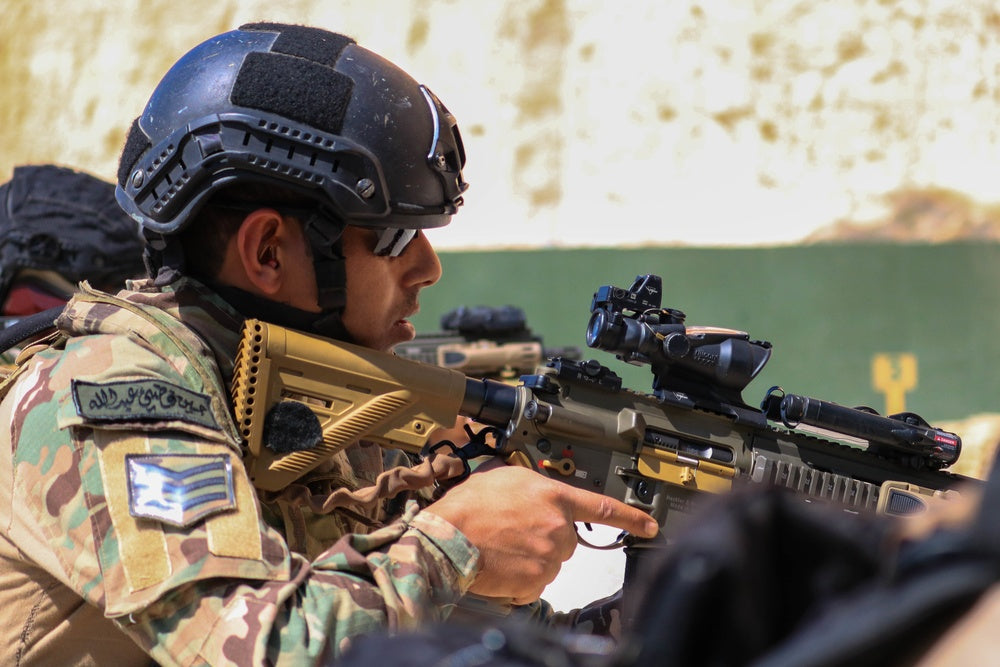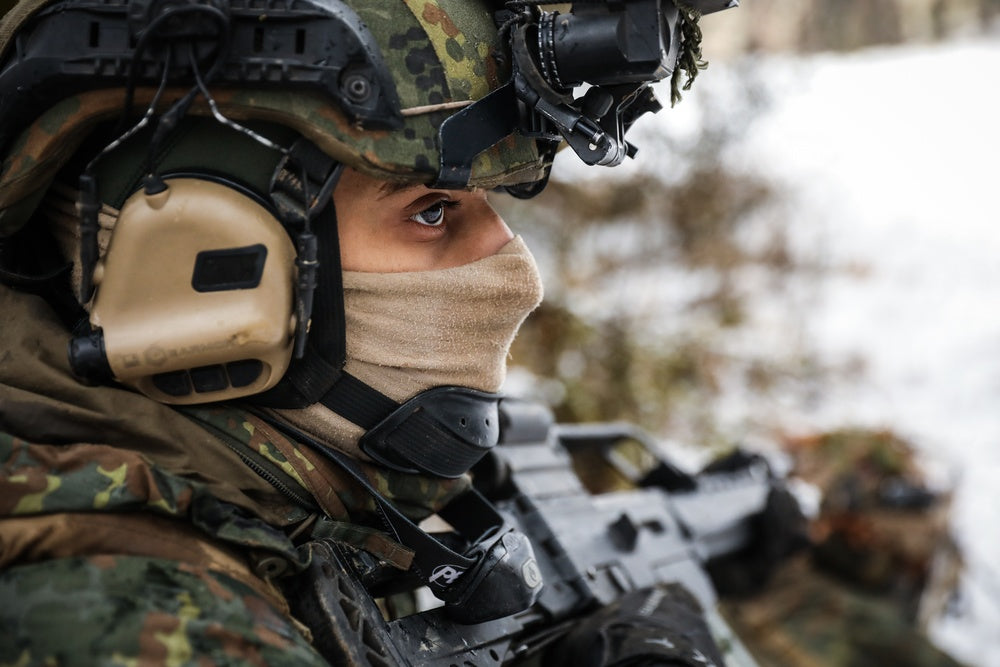
Jordan says troops wounded, arms seized in Syria border clash with smugglers
PHOTO CAPTION: Jordanian Armed Forces Soldiers, Special Unit Two counterterrorism, conducts flat range drills and exercises during Eager Lion on King Abdullah II Special Operations Training Center, April 16, 2018. (U.S. Army photo by Spc. Jack Oathout via U.S. Defense Visual Information Distribution Service)
By Suleiman Al-Khalidi
AMMAN (Reuters) -Jordan's army said it had seized weapons and drugs after clashes with armed drug dealers along the Syrian border at dawn on Monday, and officials said the gunmen were linked to pro-Iranian militias seeking to undermine the country's security.
The army said the infiltrators had fled back across the border after injuring several army personnel in the most serious of several major incursions since the start of the month that has left one Jordanian soldier and at least a dozen smugglers dead.
The army said weapons seized included automatic rifles, and said for the first time publicly that rocket launchers left by the gunmen were found.
Jordanian officials, like their Western allies, say that Lebanon's Iran-backed Hezbollah group and militias who control much of southern Syria were behind a surge in drug and weapons smuggling.
"Jordan knows the country that stands behind this. It's Iran that is sponsoring these militias. These are hostile military actions against Jordan on its territory," said Samih Maayteh, a former minister briefed by officials on developments.
Iran and Hezbollah say the allegations are part of Western plots against the country. Syria denies complicity with Iranian-backed militias linked to its army and security forces.
U.N. experts and U.S. and European officials say the illicit drug trade finances a proliferation of pro-Iranian militias and pro-government paramilitary forces created by more than a decade of conflict in Syria.
War-torn Syria has become the region's main site for a multi-billion-dollar drug trade, with Jordan being a key transit route to the oil-rich Gulf states for a Syrian-made amphetamine known as captagon, Western anti-narcotics officials and Washington say.
The army said it would "continue to track these armed groups and prevent any attempt to undermine the kingdom's national security".
"The last few days have seen a spike in these operations that are changing from infiltration attempts and smuggling to armed clashes with the goal of crossing the border by force and targeting border guards," the army statement added.
Jordan's Foreign Minister Ayman Safadi last week told Iran's Foreign Minister Hossien Amirabdollahian during a meeting in Geneva that Tehran should do more to rein in a proliferation of militias it finances that are active along the Syrian-Jordanian border, officials say.
They say the Jordanian army was considering conducting pre-emptive strikes inside Syria against those militias linked to the drug trade and their facilities in a bid to stem what they say is an alarming rise in cross-border incursions.
(Reporting by Suleiman Al-KhalidiEditing by Miral Fahmy and Bernadette Baum)









